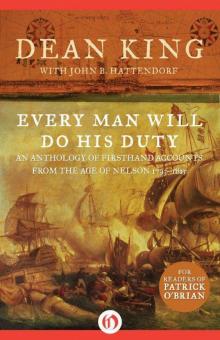Skeletons on the Zahara Read online
Page 6
Robbins and Barrett were chosen to take the longboat to shore. Stationed in the bow and stern, they steadied the craft with lines attached to rings on the bow and stern posts and looped over the hawser. This enabled them to keep the bow to the surf and pull themselves forward. As they neared the shore and the swells lifted and dropped them, they studied the waves to time their run through the surf to the beach. The roller they chose to ride in on picked them up, shot them forward onto the sand, and crashed them down with a thud, staving in the bottom of the boat.
Riley, Porter, Robbins, and Barrett wrestled the heavy barrels up the beach and were relieved to discover that except for a small amount of bread, the food had not been ruined in the landing. Daylight arrived while they gathered the objects floating in from the wreck. According to Robbins, Riley ordered the chest of money sent ashore. The mates unfastened one of the ropes extending from the ship to the shore and secured it around the chest of coins, and the four men hauled it in.
Still firmly in the clutches of the reef, the brig had filled with water but for the moment resisted her inevitable disintegration. Riley signaled to the mates to cut away her masts to ease the strain on the hull. Burns, Clark, and Hogan set to work, and the rigging soon tumbled to starboard, toward the sea, projecting beyond her bow and blocking the waves, which increased her protected lee. Although the brig was free of the top burden, the crew was now more exposed. Waves broke high over the hull, sweeping unimpeded across the bare deck. In danger of being washed off, the men clung to the bowsprit and the fore-chain-wales on the leeward side.
With the longboat smashed and the small boat useless in the rollers, Riley signaled to his men to come to shore by way of the hawser. Hogan was the first to try. He pulled off his jacket, grabbed onto the hawser, and began to shinny toward shore. As he cleared the wreck, each surging black curl of sea swallowed him. Time after time, he clung desperately, emerged from a foaming maelstrom, and crept forward again. Led by Riley, the sailors on shore moved along the hawser into the surf to help.
Finally, a wave broke over Hogan's head and ripped him away. Riley had waded out along the massive rope until he was chin deep, stationing Barrett, Porter, and Robbins behind him, all using the hawser to stabilize themselves against the breakers. When their shipmate came tumbling toward them, they managed to grab him and drag him ashore. They placed Hogan facedown and pumped the seawater from his belly.
Second mate Savage followed Hogan down the hawser. The crew again stationed themselves in the surf and caught him as he approached the beach. Horace followed his cousin. Then came Michel, Williams, Clark, Burns, and Deslisle. A lone pig, a runt of only twenty pounds, had bobbed ashore and came squealing up the beach. It was the only survivor of the Commerce's livestock.
The crew had made it ashore intact, but they had little cause to celebrate. The coast of the Sahara had a reputation that had unnerved many good men. In 1810, when the 280-ton New York brig Charles, under Captain John Horton, wrecked here en route from Gibraltar to the Cape Verde Islands, Robert Adams, a seaman on board, commented that "though the captain was a man of courage, he appeared to be utterly deprived of reflection after the vessel struck." Deranged and combative, Horton was murdered by the Arabs. Before that, when the French ship Les Deux Amies grounded near Cape Blanco in 1784, Captain Carsin became so distraught at the thought of being eaten by cannibals that he tried to blow up the ship's magazine. When stopped, he put two bullets in his throat.
Riley allowed the men a few minutes to recuperate on the beach before he directed them to haul the boats and chests farther from the surf. Curiously, they had not managed to bring any guns ashore. Neither Riley nor Robbins mentions what became of their weapons. Riley says only that on the beach they "had no fire or side arms," though they did have handspikes, six-foot iron-shod wooden levers for turning the windlass— or, when necessary, for fending off boarders. A merchant brig would certainly have carried at least a chest of small arms and ammunition and quite probably more. For instance, the 171-ton English brig Thames, trading in Africa when it was taken by the American privateer Yankee in 1813, mounted eight 12-pound carronades, albeit during war. Since, like most mariners of the day, Riley believed that cannibals lived on this coast, one would think that he would have made it a priority to secure the small arms and ammunition.
Perhaps they had been waterlogged or had sunk into the sea during the tumultuous trip to shore. Or maybe the men had been so busy trying to survive the wreck and the surf that they forgot about the threat on land. In any event, Riley had already formulated a rough plan, and it focused on mobility, not force. He hoped they would not encounter the natives at all. He needed only enough time on the beach to repair the boats and, after the surf had calmed, to put to sea. His compass and other navigational tools had made it safely to shore. Using these, he hoped to find a friendly ship to rescue them or to sail down the coast to a European settlement or the Cape Verde Islands. Undoubtedly, this was the best tactic. Christian sailors who refused to disarm on this coast were treated brutally by the Arabs and often slaughtered to a man.
Riley harbored no illusions about their prospects of escape, however, and immediately prepared for the worst. Once they had gathered the important possessions, he opened a chest and produced two bags containing about a thousand Spanish dollars each. Although the money belonged to the brig's owners, he handed it out in the hope that it might be useful if they were captured.
"He told us all to take as much of it as we could conceal," recalled Robbins, who said that he took none because he already had more of his own than he could hide from the "eye of an Arab." Others were not so bashful. They made themselves richer than they ever had been or ever would be again.
But they had little time to revel in it. As the sun rose over the African dunes and they buried the remaining bag of silver pieces of eight in the sand, they noticed a wild-looking man about half a mile away, walking up the beach toward them.
chapter 4
A Hostile Welcome
After running aground at Cape Noun in 1800, Judah Paddock, captain of the merchant ship Oswego, out of Hudson, New York, gained some valuable insights into the mind of the desert Arab from his captor, Ahamed. Ahamed explained to him that the people of the coast "pray earnestly to the Almighty God to send Christians ashore."1
A large ship had wrecked there recently, Ahamed elaborated. Three Arab tribes had banded together and slaughtered the defiant crew, not only because the Christian sailors were infidels and interlopers, but because they had failed to submit to the "true believers" and to surrender their property, which the Sahrawis believed now rightfully belonged to them.2 "There is no confidence to be placed in Christians," he admonished Paddock, "for whenever they come ashore . . . they bury their money in the sand, as you yourself have done, to prevent it from falling into the hands of the true believers."
What they could use and carry from a shipwreck, the Sahrawis took. What they could not take, it was their custom to burn. To the victims who witnessed this destruction of their personal articles and the cargo of their vessel, it was often the last cruel blow before they assumed the life of a slave to some of the poorest people on earth, living in some of the harshest conditions imaginable.
By the time the wild-looking man had come within a hundred yards of the Commerces, they could see that he was old, dark-skinned but not black, and that his hair looked, according to Riley, like "a pitch mop, sticking out every way six or eight inches from his head." He approached them guardedly, poking at the clothing and the wreckage strewn along the beach, seizing anything he wanted. Robbins observed that he seemed "agitated by the mingled operations of joy and fear."3
Slowly, Riley began walking toward the stranger. When he got to within ten paces, the man motioned for him to stop.
Riley was now close enough to get a good view of the man Robbins would later call "a slander upon our species." He was about five foot seven and dressed in a crude woolen cloth from his chest to his knees. His red eyes glare
d out, according to the captain, from a weather-beaten "ourang-outang" face, covered in a matted beard curling to his bare chest. His mouth was wide like a jackal's.
He was possibly an Imraguen, a dark-skinned people who predated the Berbers in the region, having arrived during Neolithic times, but more likely a Berber, whose ancestors first rolled onto the plains of the western Sahara in horse-drawn carts and chariots around 1000 B.C. and with their iron spears began to dislodge the Imraguen. In more recent centuries, waves of Arab invaders had Arabized or vassalized the Saharan Berbers. The Arabized Berbers called themselves Arabs and adopted bedouin life, using the camel to roam and dominate the Saharan plains; they stripped their defeated enemies of camels and firearms and banished them to the coast. In one of the supreme ironies of the Sahara, the shoreline— where it was easiest to sustain life by taking advantage of the rich sea and relatively abundant pasturage— was the domain of the degraded: tributary Imraguen and Berbers who caught fish for their masters.
Portuguese sailors had long claimed that these coastal dwellers ate the livers and drank the blood of dead Europeans, and this belief was still current, at least among seamen. Nonetheless, Riley made signs of peace and friendship to this jackal of an old man. He waved at the wreckage on the beach and invited him to take some. According to Robbins, the Sahrawi helped himself, then quickly retreated with his spoils over the dunes, his intentions still unclear.
Though they had not been attacked, this first encounter with a native was a blow to the sailors. He seemed as primitive and ill-looking as they had feared, and as inhospitable. They had no doubt that he would return with superior numbers. Morosely, they turned to setting up camp, building a tent out of broken spars, oars, and studding sails, and gathering in the salvaged provisions and water, which represented their only means of survival on the godforsaken coast.
They had little time to fret, however, before the jackal returned with others. This time he showed no trace of the fear that Robbins had detected before, only insolence. But it was his two wives who most unnerved the sailors. With protruding eyeteeth, blazing eyes, and wrinkled folds on their faces and bare chests, they looked ancient, reptilian, every bit the primitive flesheaters of the sailors' imaginations. A bevy of frenetic naked youths danced around them, including a shapely, smooth-skinned teenage girl, whose disarming beauty was jarring in such a threatening horde. Among them flashed an ax and an English hammer. Long sheathed knives hung from ropes at their sides.
The sailors were inclined to drive them off with handspikes, but Riley restrained them. He was not optimistic about their chances to escape either by land or by sea. As unlikely as it seemed, these Sahrawis might be their only hope. Besides, he felt sure that if they attacked this motley band, any of the Sahrawis who escaped would call in reinforcements and destroy them. Riley drew a line only at the provisions, the loss of which would mean their doom anyway. Their bread and salt meat, he instructed, their casks of water and wine, should be guarded at all costs.
At first the Sahrawis moved about warily, gathering odds and ends washed up on the beach. As they met no resistance, they grew more audacious, smashing open sea trunks and chests, grabbing the clothing inside, and carrying it up onto the dunes, where they spread it in the sun to dry as if they were doing their laundry.
They secured what was easy first. They found Riley's chest of silk veils and handkerchiefs, and this was most pleasing. They made turbans of the veils and festooned their arms and legs with the colorful handkerchiefs. Not knowing what to make of the feather bed, they slashed it and laughed as the powerful wind carried away the sodden feathers.
Seething and heartsick, the sailors watched as these strange people reveled. Riley tried to convince his humiliated men to attempt to befriend the natives, but it was all he could do to keep them from a violent reprisal. Then one of the plundering youths handed the cold, wet, miserable sailors fire, a good turn that neither Riley nor Robbins tried to explain in their memoirs but that underscores just how differently the Western sailors and the Sahrawis perceived their positions and circumstances. What the sailors saw as robbery, the Sahrawis viewed as accepted, even expected, behavior on the desert. For the moment, this sympathetic act averted a confrontation.
Now that they had abandoned the Commerce, Riley privately questioned his legal authority over the crew, though outwardly he remained in full control. By U.S. law, the master of a vessel held the power to command his men as a father would his children. As late as 1880, a Maine court wrote that three classes of people are rightly governed in this manner: children in families and schools, lunatics in asylums, and sailors on ships. However, Riley now had no ship.
While the Sahrawis came and went over the dunes with their booty, Riley calmly turned his attention to repairing the longboat, which had suffered both from neglect and from the beating it had taken in the surf. He found damaged planks on the verge of springing and nails so corroded by rust that they were shearing off. He hesitated even to turn the boat over to work on its bottom, afraid that it would collapse under its own weight.
Some of the crew followed the captain's lead and came to help, while others gave in to despair. Tired of the futile waiting, Porter volunteered to swim out to the brig to get tools and supplies to make repairs. He was a strong swimmer, and when the wind lulled in the afternoon, he made it to the hull and searched around. He returned to shore again with a marlinespike, a foot-long pointed metal rod useful for hammering as well as splicing, and some badly needed nails. Riley and some of the men set to work on the boat. Horace and Savage pitched in, along with, Riley noted laconically, "one or two more," probably Robbins and Porter, who helped turn the boat over and filled the hull's loose seams with oakum.
The rest, apparently including first mate Williams, tended to the fire and tapped a cask of wine and drank to dull their fear. They seemed unconcerned that they were weakening themselves in case of attack. Riley later chose not to identify those who had discredited themselves, perhaps because by that time any further punishment would have been redundant. Riley stationed the drinkers, armed with handspikes, around the camp as much to keep them occupied as to dampen the ardor of the thieving Sahrawis. But the former persisted in guzzling wine and the latter in snatching things and carrying them off. After the Sahrawis took the first of the two sails that composed the makeshift tent and then tried to grab the second, Riley rose to his full six feet and indicated with his hands that they must stop. The jackal and his band unsheathed their weapons and held them up menacingly but Riley refused to be intimidated. He did not flinch, and they backed off, eventually leaving with their haul.
That night, using the dried spars and timbers of previous wrecks for their fire, the sailors roasted a chicken that had drowned in the wreck and washed ashore. Their last hot meal for a while also included salt pork and bread and butter. The jackal had indicated to Riley that he and his band would be back in the morning. The captain set a watch of two men, instructing them to keep a fire burning with the withered debris they had gathered on the beach. The rest of the men fell asleep on the sand.
Except for Riley. To the lament of waves crashing on desert sands, he reflected painfully on the fate of his wife and— by now, God willing— five children. Who or what would prevent them from falling into "indigence, degradation, and ruin"? he wondered. Beneath the resplendent sky, the Milky Way an arc of angels' breath from the southwest to the northeast, he felt a swell of regret at the unfettered pursuit of wealth practiced in his country, "a land called Christian it was true," he later wrote, "but where avarice taking possession of the soul leaves little for the unfortunate widow, the fatherless child, or helpless orphan to expect save a bare existence."4 And, it went without saying, where men were sent on long and dangerous voyages for the sake of profits.
The night sky was perfect and he wished he could share it with his family, fearing that they might never share another. After midnight, the waning quarter moon rose at the tip of the upper horn of Taurus, near Orion in his et
ernal dance with the Pleiades. Higher up, red Mars simmered. In the northwest, Vega, Altair, and Deneb glistened brightly like children's eyes. Elegant Cassiopeia crowned the northeast, while Hercules was setting in the west. These were his signposts in the sky, his map of the planet. Shuddering in the cold wind, Riley begrudged them their constancy. He could do nothing for his family now. He was like the lost Pleiad: separated from his family for eternity. He looked over the sleeping crew. "It was a sacred duty assigned me by Providence," he concluded, "to protect and preserve their lives to my very utmost." He could only try to keep himself and his men alive, and pray for a miracle.
Shortly after sunrise, the Sahrawis returned. This time there were no pretenses. Their leader, the jackal, brandished a colossal spear over his shoulder, cocked and ready to throw. Jabbing his free hand at the sea and braying, he demanded that the sailors go to the wreck and bring more things to shore. Then he pointed to a drove of camels and camel riders approaching from the east. The women ran down the beach ululating, stooping to gather sand and tossing it in the air to attract the riders.
The jackal advanced on the tent, thrusting his absurd-looking spear— an iron head on a spliced shank about twelve feet long— at the sailors. Riley ran to the surf and grabbed a long spar. Using his size advantage, he parried the Sahrawi "with the most consummate coolness," according to Robbins. As he did, he ordered the crew to launch the small boat.

 A Sea of Words
A Sea of Words Skeletons on the Zahara
Skeletons on the Zahara The Feud: The Hatfields and McCoys: The True Story
The Feud: The Hatfields and McCoys: The True Story Every Man Will Do His Duty
Every Man Will Do His Duty 9/11...The Tragic Story of the Day that Changed America: The Terror, The Horror and The Heroes
9/11...The Tragic Story of the Day that Changed America: The Terror, The Horror and The Heroes White Slave Cop
White Slave Cop Skeletons on the Zahara: A True Story of Survival
Skeletons on the Zahara: A True Story of Survival